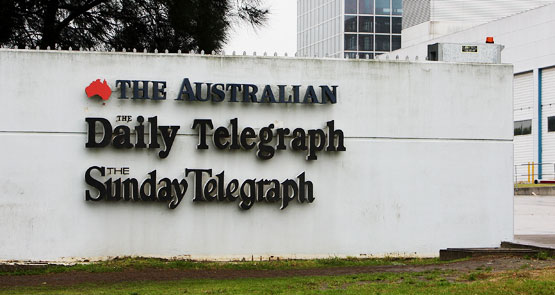
A big, aggressive US fund manager surprised the market this morning by revealing it had picked up 11.9% of the voting B-class shares in Rupert Murdoch’s News Corp. The question now is whether, as they say in sharemarket parlance, News Corp is in play.
Southeastern Asset Management, through a couple of its major funds (called Longleaf), revealed it had spent more than $400 million at current prices, amassing a stake of 23.767 million B-class News Corp shares. The purchases have been made since June 30, when Southeastern didn’t own any News Corp shares (the company split from 21st Century Fox on June 28). Southeastern is controlled by investor Otis “Mason” Hawkins.
A hostile takeover is unlikely at the moment because of a poison pill defence adopted by News Corp before the split that would allow the board to issue enough shares to dilute the unwanted suitor’s stake. But the move is considered a major surprise, as fund managers usually buy the A-class non-voting shares because they are more liquid and more easily traded. There are just over 199.63 million B-class shares and over 379 million non-voting A class shares on issue by News Corp after the split. News Corp shares closed at $17.73 in Australia last night. Prince Al-Waleed bin Talal of Saudi Arabia has a small holding of B-class voting shares and supports Rupert Murdoch.
News of the move into the register by Southeastern came after US trading closed this morning, our time, so the impact will be felt in the Australia market first up this morning. It is considered odd because big investors have abandoned News Corp and invested in 21st Century Fox and its TV, film and cable content and distribution businesses, which are seen as having better growth prospects than News’ analogue print assets (and relatively weak pay TV operations in Australia).
The US43 billion (assets under management) Southeastern isn’t a passive fund manager — it teamed up with legendary US investor Carl Icahn to try to challenge the privatisation of Dell by founder Michael Dell and others (that was a $US20 billion-plus deal, which was only abandoned at the start of this week).
The US newspaper industry has attracted an increasing number of deals lately, such as the $US250 million purchase of The Washington Post by Amazon’s Jeff Bezos, the sale of the Boston Herald by the struggling New York Times, multiple newspaper purchases by Warren Buffett in middle America since late 2011 and the separation of the newspaper interests of the Tribune Co (including the LA Times) into a separate company preparatory to a possible sale. News Corp last week sold the local newspapers of the Dow Jones Co to a US investment group.
The big prize in this deal is The Wall Street Journal in the US, plus the Dow Jones newswire and the Marketwatch.com websites. The newspaper assets in Australia, the UK and the Australian pay TV assets are marginal. Harper Collins, the book group, would have value to another publisher.
Southeastern’s buying reminds some older market watchers of how John Malone (Liberty Media, Liberty Global) snatched a near 20% stake in News Corp as it moved its domicile from Australia to the US state of Delaware in 2004. The News Corp board subsequently adopted the poison pill defence after Murdoch had done a deal with Malone to sell him assets (most notably a major stake in the satellite group DirecTV, three regional TV networks and cash). That poison pill defence was maintained until 2008, when it lapsed.
But to avoid being taken by surprise again, News Corp directors adopted the poison pill defence back in June. In doing so directors said the move didn’t rule out an agreed offer, just hostile bids. It doesn’t kick in until a possible suitor has bought 15% or more of the voting shares. The scheme allows News Corp (and 21st Century Fox) to flood the market with shares, which News Corp investors as of June 21 (when it was adopted) can buy at half price, if a hostile bidder acquires 15% of the stock. Rupert Murdoch also can buy shares to keep his voting stake at about 40%.
News Corp says that the anti-takeover plan is “intended to protect the stockholders” from a move that directors of either new company deem to be “not in the best interests of the companies and their respective stockholders”. But it does leave open the possibility of a “merger, tender or exchange offer or other business transaction approved by either the board of directors”.
The question is, what will Southeastern do with its new voting stake in News Corp?








That would be a “Free Market Poison Pill”?